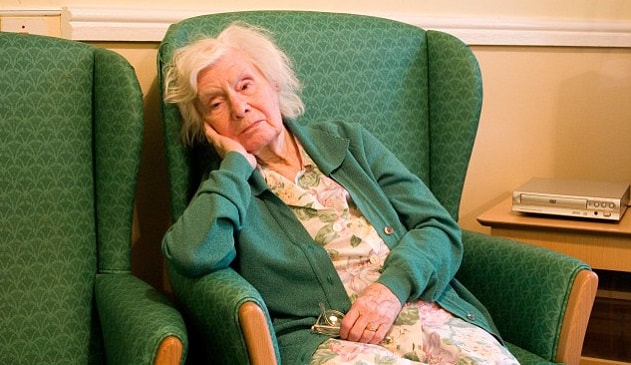|
Every day, many elderly people don’t wish for more money or even happiness but an independent life with good health which would prevent them from relying on others for their daily chores. The scenario at most homes involves an elderly person sitting in a comfortable chair reading newspaper or watching television for most part of the day. They are all people who were once actively involved in various activities or even sports. But now, their mobility levels are minimal. Mobility, the ability to transfer body weight, climb stairs, walk independently and walk at moderate speeds reflects the quality of life of individuals-better mobility means a better quality of life. Ageing is a gradual phenomenon that spares none and brings about a number of health-related changes, or in fact challenges, that includes mobility impairment.
A majority of the ageing population faces daily trouble with walking and suffers from restricted mobility-either needing the help of a caretaker, a walking stick or even wheelchair. This curbs their independence and also makes them a victim to falls. If you assess, its been shown with clear evidence that there are factors such as obesity and lifestyle factors such as decreased physical activity that play integral roles in developing mobility loss in elderly population. This is also the result of a study on more than 1,00,000 individuals aged between 50 and 71 years followed up for more than 10 years to notice changes in their mobility. While none of the participants faced difficulty in walking at the start of the study, after 10 years it was found that 21% men and 37% women had troubles walking at a normal pace or were unable to walk at all. Those participants who were obese and least active were at maximum risk for walking disability and the risk of mobility loss increased with increase in weight. Even normal weight individuals were at an increased risk of walking difficulty when they led a sedentary lifestyle. Women who spent less than 3 hours in physical activity over the course of a week were at a 5-fold greater risk of mobility loss compared to obese, inactive males who were at a 4-fold risk. There is light at the end of the tunnel-though you might be broken with mobility issues, sustained weight loss improves mobility in older obese adults. Even if older adults aim for 150 minutes per week of activity, they can improve their physical function. Such exercise programs in combination with dietitian-guided nutrition interventions helps in enabling long-term weight loss. Get in touch with registered dietitian nutritionists at www.firsteatright.com to plan a well-balanced diet that could help you lose weight. This improves muscle quality, muscle power and the endurance needed for climbing stairs or walking much distances. Performing physical activity is the need of the hour for obese elderly women compared to men as they suffer from lower muscle strength and physiologic reserve. It is better to reduce your TV viewing time too as this exists as an independent risk factor for obesity. Try to make simple body movements while watching TV or go out for a walk in the park with your group of friends. Such social interactions keep you engaged and you don’t feel isolated. Taking such steps to improve quality of life can go a long way towards betterment. Comments are closed.
|
AVOID FRAUD. EAT SMART.+91 7846 800 800
AuthorDietitian & Nutritionist Dr. Nafeesa Imteyaz. Archives
July 2024
Categories
All
Dr. Nafeesa's Blog @blogspot |
- Home
- Written Testimonials
- Consult
- Clinics
- Blogs
-
Diet & Nutrition
- Diabetes Reversal
- IVF IUI not needed for PCOS PCOD Infertility
-
Medical Nutrition
>
-
Disease & Conditions
>
- Infertility | PCOS
- Diabetes Mellitus
- Cholesterol
- Hypothyroid
- Kidney Problems
- Hypertension
- Cardiovascular Diseases
- Liver Diseases
- Gastro intestinal disorder
- Cancer
- Metabolic Disorders
- Orthopedic Disorders
- Eating Disorders
- Dietary Recall
- Weight Record Filled By Clients
- Online Payment Transaction Details
- Online Clients Weight Check Form
- Our Program Package Service Charges
- Weight Record 2017 Clients
- Measurements sent by Clients
- Terms & Conditions Of Payment
- Thanks. Your Form is Submitted
- Video Testimonials
- Lifestyle & Wellness
- Lifestyle & Wellness Blog
- Allergy & Intolerance
- Weight Loss / Gain
- Weight Loss / Slimming Blog
-
Disease & Conditions
>
- Life Cycle Nutrition >
- Sports Nutrition >
- Integrity in Nutrition
- Knowledge Centre
© COPYRIGHT 2022. ALL RIGHTS RESERVED. FRST HEALTHCARE PVT LTD.
Dr. Nafeesa Imteyaz of First Eat Right clinic, is the Best Dietitian Nutritionist in Bangalore. Best Dietitian Nutritionist in Pune. Best Dietitian Nutritionist in Hyderabad. Best Dietitian Nutritionist in Chennai. Best Dietitian Nutritionist in Mumbai. Best Dietitian Nutritionist in Delhi. Best Dietitian Nutritionist in Kolkata.


